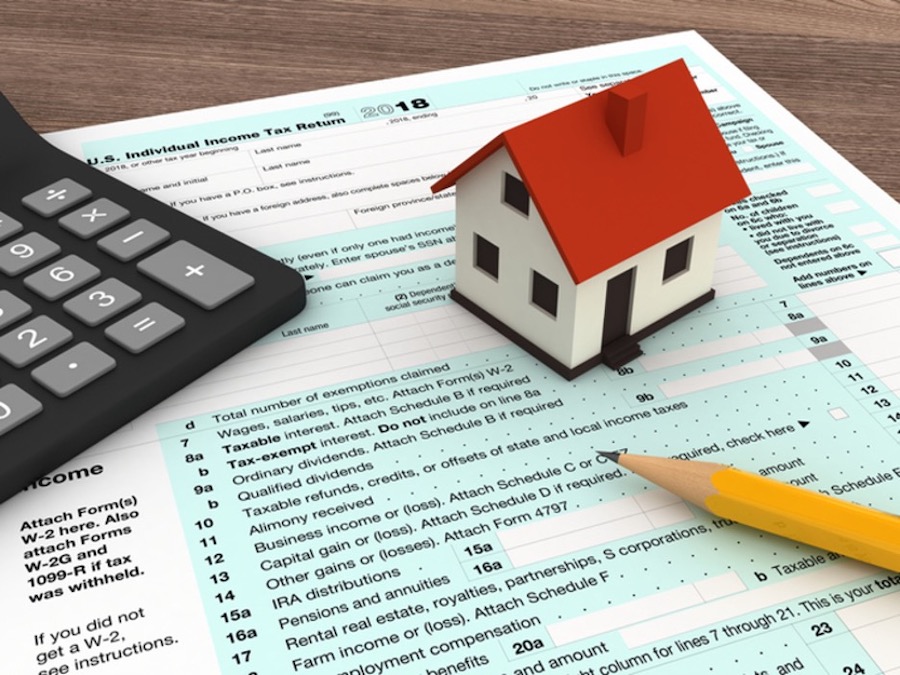While many people have a general idea of what passive income is, they are often pleasantly surprised to learn how passive income from real estate is taxed.
In this article, we’ll define what passive income is, how it’s defined specifically for real estate, and how this type of income is currently taxed.
Key Takeaways
- Passive income is generated from assets such as limited partnership shares and rental property.
- Rental income is generally treated as passive income even if the investor materially participates in the activity.
- Passive income tax is paid on recurring income and any gain made when the property is sold.
- There are significant tax differences between earned income as an employee and passive income generated as a real estate investor.
What is passive income?
According to the IRS, there are over two dozen types of income. But for practical purposes, income is grouped into one of three general categories:
- Earned income is money made from working for someone else or owning your own business.
- Portfolio income is a type of passive income including bond interest payments, stock dividends, and capital gains made when securities in a portfolio are sold.
- Passive income is income generated from royalties, shares of a limited partnership, and from rental real estate.
The IRS considers income to be passive if it is earned from a rental activity or from a business that the taxpayer does not materially participate in.
Passive income from real estate
Material participation occurs when a taxpayer is involved in a business on a regular, continuous, and substantial basis.
For example, a property manager whose full-time job is managing rental property for investor clients materially participates in the property management company.
On the other hand, passive activities fall into several categories:
- Equipment leasing.
- Sole proprietorship where the taxpayer does not actively participate in the business.
- Limited partnership.
- S-Corps or LLCs where the taxpayer does not materially participate.
- Rental real estate.
Although there are times when it might not feel like it, real estate investors who own rental property are generally considered passive participants.
According to IRS Publication 925 (Passive Activity and At-Risk Rules), a rental activity is a passive activity even if a taxpayer materially participates in the activity, unless the activity was performed to fulfill responsibilities as a real estate professional, like a real estate agent or broker.
An activity is classified as a rental activity if the property is used by customers (tenants) and the gross income paid (rent) is mainly for the use of the property.

How passive income in real estate is taxed
Passive income in real estate is taxed in two different ways, based on any recurring income received each year and on any capital gain on sale when the property is eventually sold:
1. Recurring Income
Income the property generates after the rent has been collected, the operating expenses and mortgage interest have been paid, and depreciation has been deducted, is taxed as passive income.
The amount of tax paid each year depends on the investor’s tax bracket. Federal income tax brackets range from 10% to 37% for 2024, according to the Tax Foundation. Although tax is still paid on passive income generated from real estate, a large percentage of the income may be sheltered by depreciation.
For example, assume a rental property purchased for $150,000 generates a gross annual rental income of $18,000 per year. After paying normal operating expenses (such as property management, repairs and maintenance, insurance, property taxes, and mortgage interest) the property nets $7,000 before depreciation.
However, real estate investors are also allowed to depreciate the value of the building (excluding the land value) over a period of 27.5 years. So, if the value of the lot the home sits on is $15,000, the annual depreciation expense is $4,909 ($135,000 / 27.5 years).
After deducting the depreciation expense of $4,909 from the $7,000 of income before depreciation, an investor is left with $2,091 in taxable income. If the investor is in the 32% income tax bracket, tax paid is $699. But by comparing the tax paid of $699 to the amount earned of $7,000, the effective tax rate is actually about 10%.
2. Capital Gains
Real estate investors also pay tax on the capital gain generated when the property is sold. Capital gain is the amount of profit earned on the sale (if any) after recapturing and paying tax on the depreciation taken during the property holding period.
Short-term passive gain
If the property is held for one year or less, any capital gain is treated as a short-term gain and taxed at the same rate as an investor’s income tax.
For example, if an investor purchases a home for $100,000 and resells it three months later for $120,000, the gain of $20,000 is taxed as regular income. If the investor is in the 32% tax bracket, tax paid on the short-term gain would be $6,400.
Long-term capital gain
Real estate investors pay a passive income tax on any long-term capital gain when the property is sold, along with tax on the depreciation recapture.
As a side note, it can be a good idea to use a rental property financial management system like Stessa to keep track of items such as capital expenses, depreciation, and capital gains, and to consult with a tax professional.
![stessa-mac-mockup-2800-2500[4]](https://learn.roofstock.com/hs-fs/hubfs/stessa-mac-mockup-2800-2500%5B4%5D.jpg?width=2800&height=2500&name=stessa-mac-mockup-2800-2500%5B4%5D.jpg)
Now, let’s look at a simple example of how long-term capital gains are calculated when a rental property is sold.
Let’s assume a single-family rental home purchased for $100,000 four years ago is sold for $150,000. The value of the lot is $10,000, and the annual depreciation expense taken was $5,091 per year for a total of $20,364 over the four-year holding period.
Depreciation recapture tax: When the rental property is sold, the depreciation expense of $20,364 is recaptured by the IRS and taxed at the taxpayer’s normal income tax rate, up to a maximum of 25%.
In this example, the investor would pay a maximum depreciation recapture tax of $5,091 ($20,364 x 25%), even if the investor is in a higher income tax bracket.
Long-term capital gain tax: The remaining capital gain of $50,000 (sale price of $150,000 less the original purchase price of $100,000) is taxed at 0%, 15%, or 20% based on the investor’s taxable income level and filing status.
For example, if the investor has taxable income of between $80,000 and $501,600 and is married filing a joint return, the long-term capital gains tax rate is 15%. So, the investor would pay a long-term capital gains tax of $7,500 based on this scenario.
Taxes paid by the investor would be $5,091 in depreciation recapture tax and $7,500 in long-term capital gains tax, for a total tax paid of $12,591 on a gain of $50,000.
Passive income vs. earned income
There can be a significant difference between the taxes paid on passive income and tax paid on earned income like the salary you receive from a full-time job.
Earned income is taxed at the employee’s full marginal tax rate and is also subject to FICA taxes of Social Security and Medicare taxes, totaling 15.3%, up to a certain amount.
On the other hand, passive income earned from real estate is not subject to FICA and can be sheltered from higher effective tax rates.
Common rental property deductions a real estate investor can take to reduce taxable net income include:
- Property management fees
- Maintenance and repairs
- Utilities
- Landscaping
- Professional and legal fees
- Wages paid to a W-2 employee who receives a salary or hourly wage
- Advertising costs
- Tenant screening fees
- Commission, leasing, and referral fees
- Mortgage interest payments
- Property tax
- Insurance premiums
- License and registration fees
- Travel expenses directly related to the rental property
- Home office expense
- Office supplies
- Telephone and internet
- Dues and subscriptions for professional organizations such as a real estate investor club
- Continuing education expenses such as attending seminars or enrolling in courses and coaching like Roofstock Academy
- Depreciation expense to reduce taxable income
- Pass-through tax deduction (or QBI deduction) of up to 20% of the net rental income, subject to certain limitations









